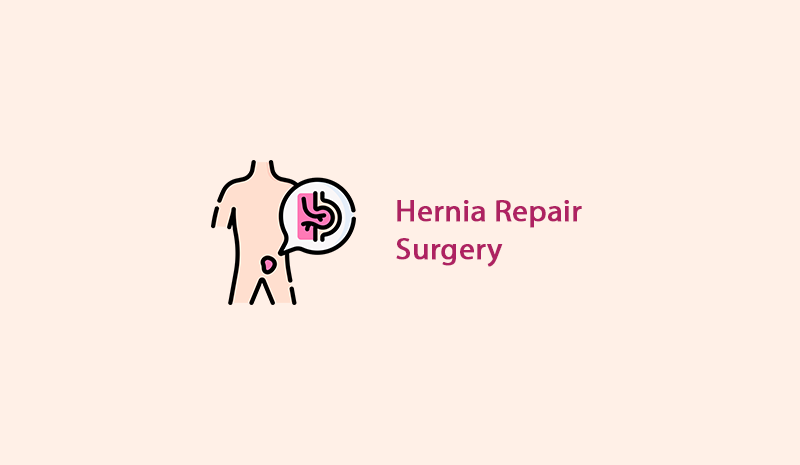Overview of Hernia Repair Surgery
Hernia repair surgery is a common procedure aimed at correcting hernias. It occurs when an organ or fatty tissue puffs out through a weak spot or tear in the surrounding muscle or connective tissue. There are various types of hernias, each requiring different approaches to repair.

Types of Hernia covers:
Inguinal Hernia: The most common type, occurring in the groin when tissue protrudes through a fragile area spot in the abdominal muscles.
Femoral Hernia: Like inguinal hernias but occurring lower in the groin, near the femoral artery and vein.
Incisional Hernia: Arises at the site of a previous surgical incision, typically due to inadequate healing of the abdominal muscles.
All Ventral Hernia Repairs including:
Umbilical Hernia: Develops around the belly button due to a weakness in the abdominal wall.
Ventral Hernia: Occurs anywhere on the abdominal wall, excluding the groin and umbilical regions.
Epigastric Hernia: Generally, an acquired condition due to injury or trauma. The fatty bulge can be seen around the navel area of the body.
Hernia Repair Surgery at KM NU Hospitals, Ambur:
There are two primary methods for ventral hernia repair: laparoscopic and open surgery.
Laparoscopic Hernia Repair: In this minimally invasive approach, small incisions are made, and a laparoscope (a thin tube with a camera) is inserted to guide the surgeon. Specialized instruments are used to repair the hernia with the assistance of a monitor displaying internal images.
Open Hernia Repair: IIn contrast, open surgery involves a larger incision directly over the hernia site. The protruding tissue is pushed back into place, and the weakened muscle or tissue is reinforced with sutures or mesh.
Risk Factors and Complications:
Several factors increase the risk of developing a hernia, including-
- obesity
- heavy lifting
- chronic coughing
- pregnancy
Recovery Period:
What is the recovery time after general surgery?
Recovery after hernia repair surgery varies depending on the type of procedure and individual factors such as overall health and lifestyle.
When can I resume normal activities after surgery?
Generally, you can expect to resume light activities within a few days to a week after laparoscopic surgery, with full recovery taking several weeks. Open surgery may require a longer recovery period due to the larger incision and potential for greater tissue trauma. Patients are advised to follow their surgeon's post-operative instructions carefully, including restrictions on lifting and physical activity, to optimize healing and reduce the risk of complications.
At KM NU Hospitals, Ambur, hernia repair surgery offers effective treatment for various types of hernias, providing relief from discomfort and preventing potential complications. Visit our expert surgeon Dr. Fasiulla today for all hernia-related problems.